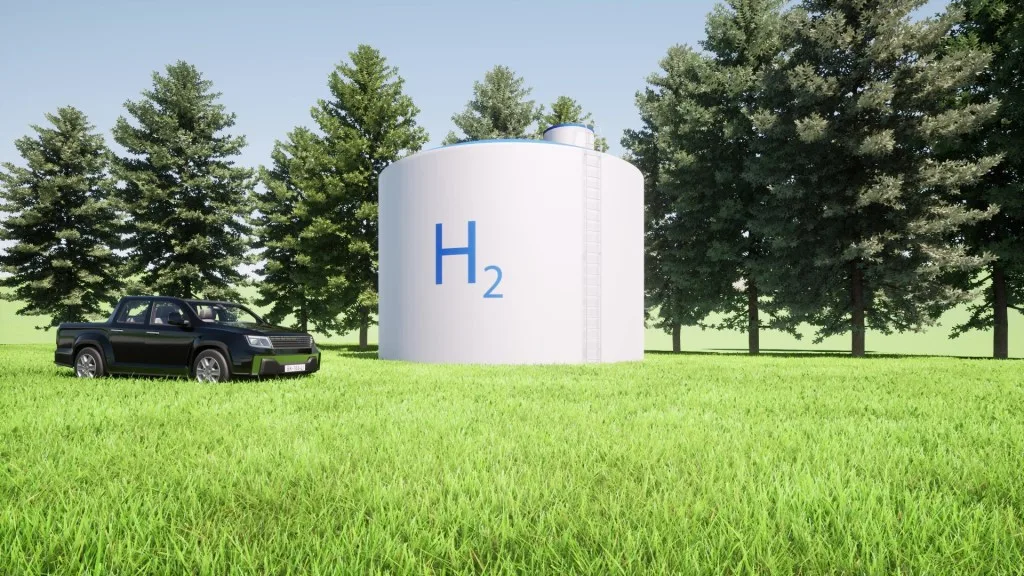Reducing emissions is better for the environment and provides cleaner air for all to enjoy. As more people strive to minimize their environmental impact, interest in hydrogen highways is rising.
Hydrogen is one option for vehicles with cleaner emissions. However, a few things stand in the way of the North American hydrogen highway making its way across the country.
You may be asking yourself, “What is a hydrogen highway?” If so, you’re in luck! Let’s take a look!
What Is a Hydrogen Highway?
A hydrogen highway is not a specific highway. It is a route with a series of public filling stations for hydrogen cars. These stations allow those with hydrogen-powered vehicles to fill up their cars.
Where Is the Hydrogen Highway?
You can find hydrogen highways in Asia, Europe, and North America. The hydrogen highway in the U.S. is a part of the California Hydrogen Highway Network. According to the U.S. Department of Energy, 47 of the 48 hydrogen refueling stations are in California. One lone public refueling station is in the state of Hawaii.
The hydrogen highway connects the cities of Los Angeles, San Francisco, and Sacramento in California. There’s a station near the border of California and Nevada so that you could venture into Nevada as well.

How Far Can You Drive a Hydrogen Car?
Hydrogen is measured in kilograms instead of gallons. One of the most popular hydrogen cars, the Toyota Mirai, takes approximately five kilograms to fill the tank. The XLE model can get just over 400 miles on a tank of hydrogen. This is roughly the equivalent of getting 66 mpg in a gasoline-powered vehicle.
These numbers exceed even the most fuel-efficient gas vehicles. However, most hydrogen cars usually have a range of over 300 miles, which puts them on a level playing field with most hybrid cars.
Is Hydrogen Fuel Cheaper Than Gasoline?
As more of us tire of seeing money tick away while fueling up with gasoline, many are looking for better options. Hydrogen can be a cheaper, more efficient, and cleaner alternative.
Hydrogen packs approximately three times the amount of energy compared to gasoline. U.S. News estimates that if hydrogen fuel were more readily available, we could expect a cost of roughly $2 per gallon.
Considering that much of the country hasn’t seen gas prices below $3 in quite some time, many are excited about the possibilities. However, there are significant hurdles that hydrogen has to overcome before it is a viable option.
Pro Tip: Still use gasoline? We uncovered What Is the Typical RV MPG? so you don’t get a shock the next time you’re at the gas pumps.

What Are the Benefits of Hydrogen?
Hydrogen is a renewable energy source. While it can be challenging to extract it from water, it is possible. It is an appealing option as more people look for environmentally-friendly options for heat, power, and traveling.
Hydrogen fuel cells are clean and efficient options for creating energy. This can result in a massive reduction in greenhouse gas emissions compared to traditional vehicle emissions.
However, it’s not just environmental pollution that hydrogen reduces. It’s able to create a much quieter car too. You can drastically reduce air pollution and noise pollution by using hydrogen.
Hydrogen is also a much more efficient fuel, so you can go farther and longer by using hydrogen. It takes a matter of minutes to fill up a hydrogen car on empty. This is much faster than the 30 to 40 minutes it takes to charge electric vehicles.
What Are the Disadvantages of Hydrogen?
While there are generous benefits to using hydrogen, there are some significant obstacles to implementing it across the country. Hydrogen doesn’t exist on its own. It requires extraction from water or separation from carbon fossil fuels. It takes a tremendous amount of energy to complete the process, often defeating the intended purpose.
There are also high costs in research investments, the price of raw materials, and regulatory issues that stand in the way. None of these are small hurdles to overcome.
There is not the same infrastructure for hydrogen as fossil fuels. This is because we have been using fossil fuels for decades in a wide variety of situations. For hydrogen to become a standard part of our lives, we would need new infrastructures.
Pro Tip: On the hunt for a more ecological RV option? Discover more about What is a CyberLandr Tesla Camper?
Are Hydrogen Cars Worth It?
If you’re looking for a hydrogen car, you need to consider whether you live in an area with hydrogen filling stations. Buying a hydrogen car with no place to fill it will render the vehicle useless.
Don’t plan on taking a road trip across the country anytime soon, as the network isn’t there. However, if you live in California and you’re looking for an environmentally friendly car, it can be a great option.
Would you consider a hydrogen car for your next vehicle? Drop a comment below!
Discover the Best Free Camping Across the USA
To be honest with you, we hate paying for camping. There are so many free campsites in America (with complete privacy).
You should give it a try!
As a matter of fact, these free campsites are yours. Every time you pay federal taxes, you’re contributing to these lands.
Become a FREE CAMPING INSIDER and join the 100,000 campers that love to score the best site!
We’ll send you the 50 Best Free Campsites in the USA (one per state). Access the list by submitting your email below:
Thanks for the quick update. I had wondered what the status of the H car was. I see it as a much better alternative than electric cars. They should bee less expensive to build endless environmentally damaging to build than electric. Too bad the government has their heart set on the electric option. I guess the electric proponents have the better lobby.